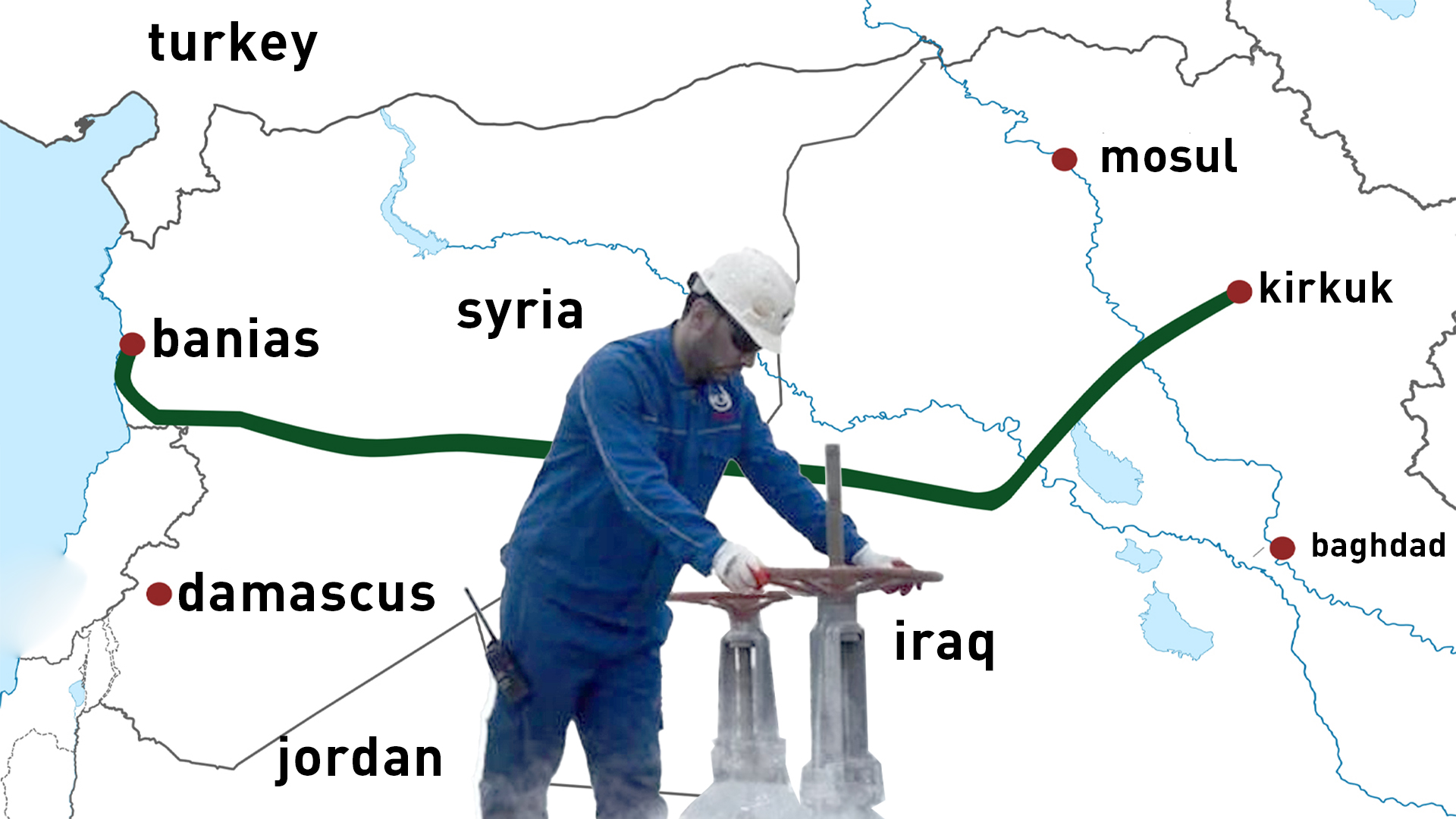Iraq Opens Talks with Syria to Revive Kirkuk–Baniyas Oil Pipeline
Iraq has opened talks with Syria to revive the Kirkuk-Baniyas oil pipeline, a strategic Mediterranean export route idle since 1952, as Kurdistan resumes oil flows to Ceyhan after a 2.5-year halt under a new Iraq Government-KRG agreement.

ERBIL (Kurdistan24) – Iraq has entered negotiations with the Syrian government to rehabilitate the long-idled Kirkuk–Baniyas oil pipeline, a strategic corridor that once linked northern Iraq’s fields to Syria’s Mediterranean coast.
Bassem Mohammed Khudair, Deputy Minister of Oil, announced that Baghdad has begun formal talks with Damascus to restore the pipeline, while simultaneously holding consultations with U.S. energy giant ExxonMobil over a series of oil sector development projects. These include investment in production fields, rehabilitation of infrastructure, and upgrades to Iraq’s export and storage systems, according to remarks reported by the state news agency (INA).
The Kirkuk–Baniyas pipeline, built in 1952, stretches nearly 800 kilometers with an export capacity of 300,000 barrels per day. It is one of the region’s oldest export routes but has remained inactive for decades due to wars and political upheavals. Its reactivation is now viewed as a strategic step that could grant Iraq an additional Mediterranean outlet and simultaneously offer Syria a vital opportunity to boost its fragile economy through transit revenues.
Khudair noted that the talks with Syria run in parallel with wider Iraqi plans to rehabilitate the country’s domestic pipeline network both in the north and south, alongside the reconstruction of crude oil storage depots.
These negotiations follow a high-level meeting on August 12 in Baghdad between Iraqi Deputy Prime Minister for Energy and Oil Minister Hayyan Abdul Ghani and Syrian Energy Minister Mohammed Bashir. At that time, the two sides discussed forming a joint technical committee to assess the Iraqi–Syrian pipeline and explore the possibility of involving an international consultant to determine whether the line can be refurbished or requires full replacement.
The Iraqi minister stressed the importance of diversifying export outlets, highlighting that Baniyas would constitute an additional option to complement the Iraq–Türkiye pipeline to Ceyhan and the Kirkuk–Tripoli line toward Lebanon.
The new negotiations with Syria come as Iraq has already witnessed a historic breakthrough in its northern export routes. On Saturday at 6:50 a.m., crude exports from the Kurdistan Region officially resumed after a suspension that lasted more than two and a half years. Shipments from the Peshkabour oil station are once again flowing to Türkiye’s Ceyhan port under a trilateral agreement between the Kurdistan Regional Government’s Ministry of Natural Resources, Iraq’s Federal Ministry of Oil, and international oil companies.
Under the framework, 190,000 barrels of Kurdish crude will be exported daily, while 50,000 barrels will remain for domestic consumption in the Region. All exports are now transferred to Iraq’s state oil marketing company SOMO, which oversees sales on international markets.
The reopening of the locked valves at Peshkabour has reconnected the Kurdistan Region’s vital energy lifeline to the Mediterranean. The process is being jointly monitored by representatives from Erbil and Baghdad, with crude from all eight of Kurdistan’s fields consolidated at the Khurmala oil station before being pumped toward Peshkabour and onward to Ceyhan.
According to Kurdistan24 correspondent Hoshmand Sadiq, SOMO has already signed a contract with a major Swiss trading company to market Kurdish oil. From Ceyhan, part of the volumes will head to European markets, while others will be shipped to North America and additional destinations.
The agreement, valid for three months, foresees a daily output of 240,000 barrels from Kurdistan’s fields, of which 190,000 will be exported and 50,000 allocated for domestic use. Iraqi officials confirmed that export volumes will be recalibrated in the 2026 federal budget according to the Region’s production capacity.
As Baghdad advances talks with Damascus to reopen the Kirkuk–Baniyas pipeline, the move underscores Iraq’s pursuit of diversification in its energy export map at a time when cooperation with the Kurdistan Region has restored a vital flow toward global markets. For Iraq, Syria, and the wider region, the outcome of these negotiations could mark another critical chapter in reshaping the geopolitics of oil after years of conflict and disruption.